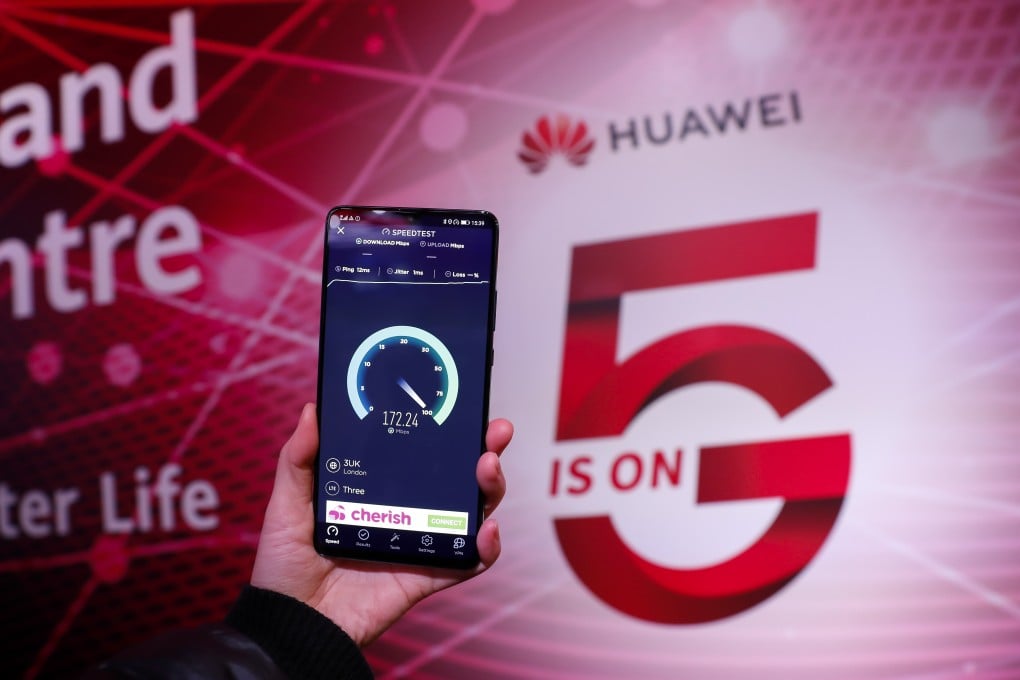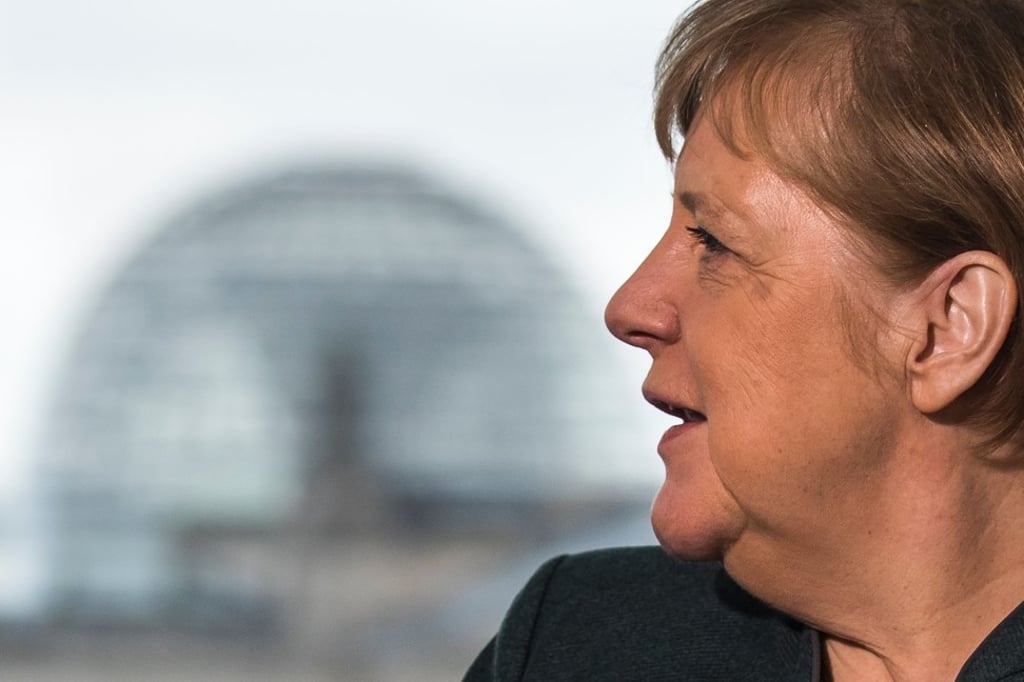Germany’s Merkel seeks to sideline Huawei hawks in ruling out full ban
- Merkel has struggled to assert control in a stand-off that pits Germany’s trade interests with China against security concerns raised by the US

German Chancellor Angela Merkel’s lawmakers will try to sideline hawks seeking to exclude Huawei Technologies from next-generation 5G mobile networks with a motion that stops short of a full ban of the Chinese telecommunications equipment maker.
Legislators in Merkel’s Christian Democratic Union-led bloc will vote on Tuesday on a motion with softer language than a draft by hardliners, who want a potential Huawei ban from 5G networks, according to the text seen by Bloomberg News. Merkel has warned against a blanket veto, saying Europe’s biggest economy cannot afford to shut out the Chinese and defying calls from US officials for Huawei to be excluded.
The German leader’s efforts to prevent a Huawei ban have been disrupted by resistance in her own ranks, as well as from members of her Social Democratic Party coalition partner. They have echoed US warnings about Huawei’s ties to the Chinese Communist Party and the risk of state-sponsored espionage or sabotage. A scheduled vote on the policy late last month was delayed.
Such open dissent is uncommon in Merkel’s otherwise disciplined CDU, which was rocked on Monday when Annegret Kramp-Karrenbauer, her chosen successor, made a surprise announcement that she would not run as the party’s chancellor candidate and will step down as CDU leader.

The decision threw the race to succeed Merkel wide open and further eroded her already weakened authority since she announced over a year ago that she wouldn’t run for a fifth term. She has withdrawn from domestic politics and her agenda has been overshadowed by a power struggle to succeed her.
Nonetheless, the CDU-led bloc’s parliamentary whip, Michael Grosse-Broemer, said on Tuesday he expects a “clear majority” for the Huawei motion, saying the draft seeks to bridge a gap with the security hawks.